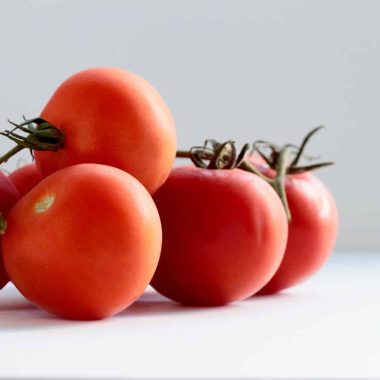Watermelon stands out as a refreshing fruit that you commonly enjoy during summer picnics and barbecues.
Due to its high water content, it helps keep you hydrated and is packed with health benefits.
It’s a great source of vitamins A and C, antioxidants, and minerals.
One common question about watermelon is its sugar content, especially if you’re mindful of your sugar intake or managing conditions like diabetes.
Each serving of watermelon contains natural sugars, which can impact your blood glucose levels.
Specifically, if you consume one cup of diced watermelon, you’re getting roughly 9.5 grams of sugar.
This amount can vary slightly based on the size of the fruit pieces you consume.
Despite the sugar content, the low carbohydrate density and the high water content in watermelon mean that it generally does not cause a significant rise in blood sugar levels when eaten in moderation.
Understanding the sugar content in watermelon allows you to enjoy the fruit while keeping your health goals in check.
Watermelon’s hydrating properties and nutritional composition make it a beneficial addition to your diet.
Remember to consider portion sizes to maintain a balanced intake of natural sugars.
Nutritional Profile
Watermelon is not just a refreshing summer fruit; it’s also a rich source of nutrients that contribute to a healthy diet.
Here’s a detailed look into what a serving of watermelon offers in terms of vitamins, macronutrients, and beneficial plant compounds.
Vitamins and Minerals
Watermelon is an excellent source of some key vitamins and minerals. Particularly, it’s rich in:
- Vitamin A: Necessary for skin and eye health.
- Vitamin C: Supports immune function and is an antioxidant.
- Potassium: Crucial for muscle function and cardiovascular health.
Watermelon also contains moderate amounts of other minerals, such as magnesium, calcium, and iron, making it a beneficial addition to your diet.
Macronutrients
A typical serving of watermelon contains:
- Carbohydrates: About 12 grams per cup (152 grams), primarily from sugars.
- Protein: Nearly 1 gram per cup (152 grams).
- Fiber: 0.4 grams per cup, aiding in digestion.
- Fats: Negligible amount, with just 0.2 grams per serving.
Given its high water content, watermelon is relatively low in calories, making it a weight-friendly choice.
Phytonutrients
Watermelon is prized for its phytonutrient contents, which include:
- Lycopene: A powerful antioxidant linked to heart health and some types of cancer prevention.
- Carotenoids: Beneficial for eye health and immune function.
These phytonutrients and other antioxidants found in watermelon help to fend off oxidative stress and may contribute to your overall well-being.
How Much Sugar is in Watermelon?
Watermelon, a juicy and refreshing fruit, is great for hydration due to its high water content and is also packed with essential nutrients.
When you’re enjoying a crisp slice, it’s natural to wonder about the sugar content.
Nutritional Breakdown:
- Sugar: Watermelon contains about 9.42 grams of sugar per cup. To put that into perspective, it’s less than what’s found in a cup of apple slices, which has about 11 grams of sugar.
Health Implications:
Diabetes and Blood Sugar Levels:
- If you have diabetes, you’re watching your blood sugar levels, and it’s important to know that watermelon has a glycemic index (GI) of around 72-80, which is considered high. However, its glycemic load (GL) is relatively low because each serving has a small amount of carbohydrates.
Benefits for Your Health:
- Rich in lycopene, an antioxidant known to reduce cholesterol and blood pressure levels, watermelon may contribute to preventing chronic diseases such as heart disease.
- Watermelon offers vitamin C, which supports a healthy immune system and skin health, assisting in collagen production for skin repair and wound healing.
- The amino acid citrulline found in watermelons can improve exercise performance and may help reduce muscle soreness.
- The fruit’s water content and small amounts of fiber support your digestive system, helping to prevent issues like constipation, bloating, and other digestive distress.
When you savor watermelon, enjoy the natural sweetness and the bounty of health benefits without overindulging, as the sugar can add up.
Remember, moderation is key to maintaining balanced nutrition and supporting your overall metabolic health.









